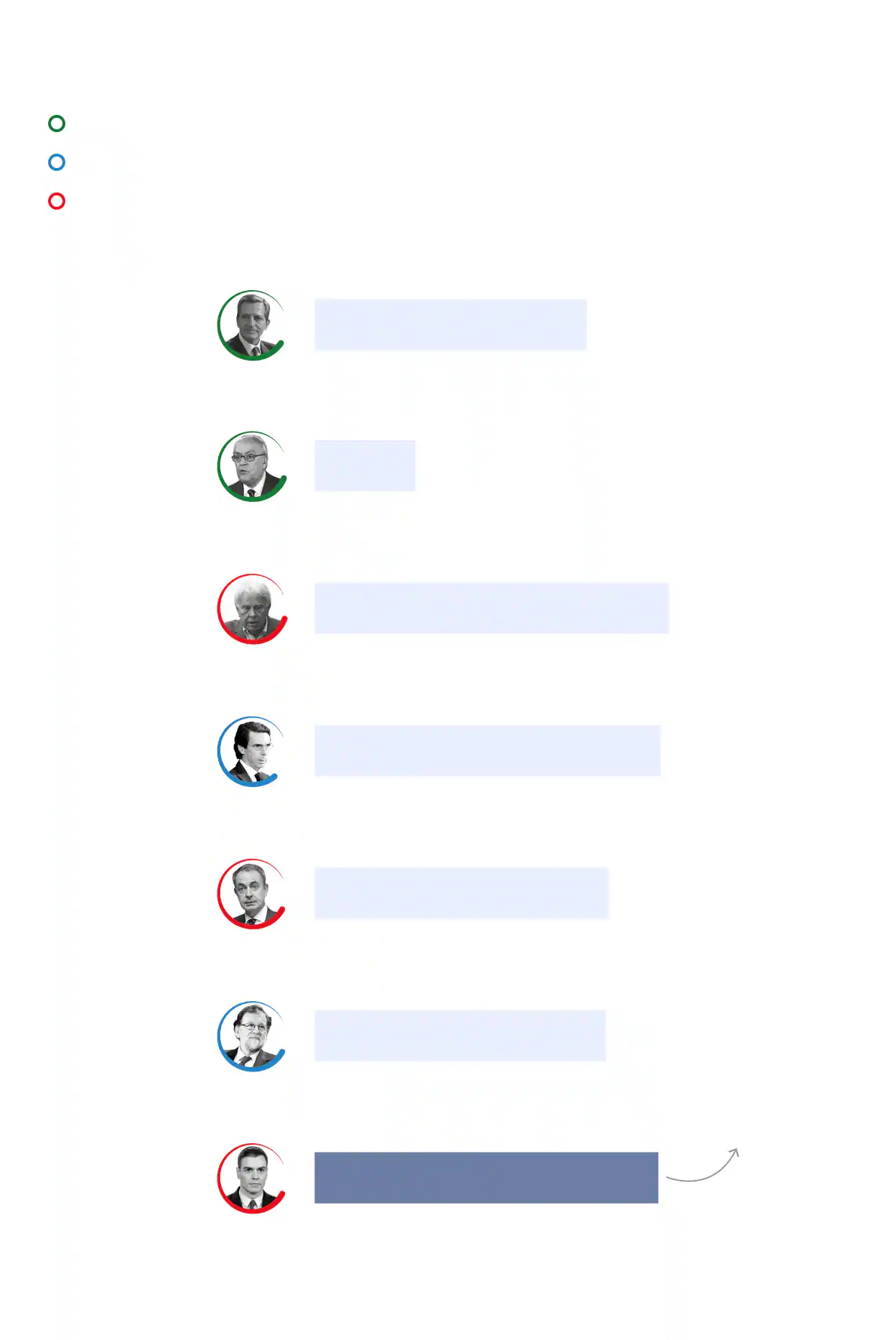The President of the Government, Pedro Sánchez, after intervening in Congress /
The 126 decree-laws that he has approved since he has been in Moncloa exceed the records of all his predecessors at the head of the Executive
Pedro Sánchez can boast of having smashed all possible records in terms of the number of decree-laws approved since his landing in Moncloa four years ago. Despite the fact that it is precisely the mechanism that the socialist leader used as a throwing weapon against the previous Government of Mariano Rajoy, the statistics show that since the motion of censure with which he ousted the popular leader, his Executive has already surpassed that of his predecessor and has come to approve a whopping 126 decree-laws.
In six and a half years Rajoy used this parliamentary tool up to 107 times. “They have converted a figure provided for exceptional circumstances into the ordinary way of legislating,” a Sánchez snapped at the time to the former Galician president, who has already comfortably exceeded that figure when there is still a year and a half to go in the legislature. In fact, the socialist is now only surpassed by Felipe González or José María Aznar, under whose governments 130 and 127 decree-laws were approved, respectively. A number that may seem high but on which it must be taken into account that González spent fourteen years in the Executive and Aznar eight.
The main advantage for the Government when making use of the decree-laws is that it does not need either of the two chambers. You can pass measures with the force of law without debate and without having to face opposition to obtain a majority. It is true that Congress then has a period of 30 days to validate said measures and that the decree may decline if it is not voted in favor. But this way of legislating prevents that, in the case of being approved, any aspect of it can be modified. It is an all or nothing.

Decree-laws approved by the various governments since 1976
Democratic Center Union
Adolfo Suarez (1976-1981)
L. Calvo Sotelo (1981-1982)
Philip Gonzalez (1982-1996)
Jose Maria Aznar (1996-2004)
Mariano Rajoy (2011-2018)
Pedro Sanchez (2018-present)
Sánchez has already passed those approved with Rajoy and only has Aznar and González ahead of him
Source: Congress of Deputies

Decree-laws approved by the various governments since 1976
Democratic Center Union
Adolfo Suarez (1976-1981)
Leopoldo Calvo Sotelo (1981-1982)
Philip Gonzalez (1982-1996)
Jose Maria Aznar (1996-2004)
Jose Luis R. Zapatero (2004-2011)
Mariano Rajoy (2011-2018)
Pedro Sanchez (2018-present)
Sánchez has already passed those approved with Rajoy and only has Aznar and González ahead of him
Source: Congress of Deputies

Decree-laws approved by the various governments since 1976
Democratic Center Union
Adolfo Suarez (1976-1981)
Leopoldo Calvo Sotelo (1981-1982)
Philip Gonzalez (1982-1996)
Jose Maria Aznar (1996-2004)
Jose Luis R. Zapatero (2004-2011)
Mariano Rajoy (2011-2018)
Sánchez has already passed those approved with Rajoy and only has Aznar and González ahead of him
Pedro Sanchez (2018-present)
Source: Congress of Deputies
The first president of our democracy, Adolfo Suárez, also used them, issuing up to 100 in the four years he was in charge of the Executive, from July 1976 to 1981. His successor, Leopoldo Calvo Sotelo, only used 37 in the time – from March 1981 to October 1982 – that he was in power.
Sánchez, for his part, has gone through different stages. He promoted 35 royal decrees in the around eight months that were between the motion of censure and the early election of 2019. Then, in the legislature in which a government was not formed after the April elections –others were called in November–, there were seven. But it is in the current legislature when the socialist leader has beaten all records: 83 royal decree-laws.
The roadmap that Sánchez aspired to fulfill when he managed to form a government has been affected by circumstances as anomalous as the covid-19 pandemic, the war in Ukraine or the volcano in La Palma. And he often hides behind it. But the reality is that this figure has allowed him to overcome the parliamentary weakness that accompanies him – he obtained the most accurate investiture of democracy with the support of 167 deputies – and has enabled him to save a political agenda that without the use of said tool would have been impossible to carry out.
conducive to controversy
The statement of at least 20 of the 126 decree-laws approved by the socialist leader allude to covid-19. Most of them are linked to the states of alarm that the Executive was extending from March 2020 to be able to implement the health, economic and social measures that it considered necessary at the time. However, before the pandemic, 17 of the 25 approved regulations had been processed through this channel.
This figure also allows several regulations to be modified at the same time, which is why the number of pages for each decree is relevant. And in this section the leader of the PSOE also takes the cake. Of the five decrees with the longest pages approved in a democracy, four belong to his government. One of them, the one approved in March to try to stop the escalation of prices and other consequences of the war in Ukraine. “There were 160 pages that changed 39 laws in one go,” a Civio report last month noted. According to this organization, since Sánchez has been in Moncloa, an average of 918 pages of decree-laws are being approved each year. A volume that is practically triple the 333 annual pages of Rajoy’s decrees.
It is common for the opposition to refer to Sánchez’s record on this front, although there are some decrees whose approval have generated more controversy than others. During the pandemic, for example, the Government slipped into one of them the inclusion of the former vice president and leader of Podemos, Pablo Iglesias, in the CNI commission. The one that was enacted in February to extend the use of masks in the streets included the revaluation of pensions with the 2021 CPI. And the latest measure for energy saving has starred in the battle between the opposition and the Government during the last two weeks.
www.hoy.es
Eddie is an Australian news reporter with over 9 years in the industry and has published on Forbes and tech crunch.
